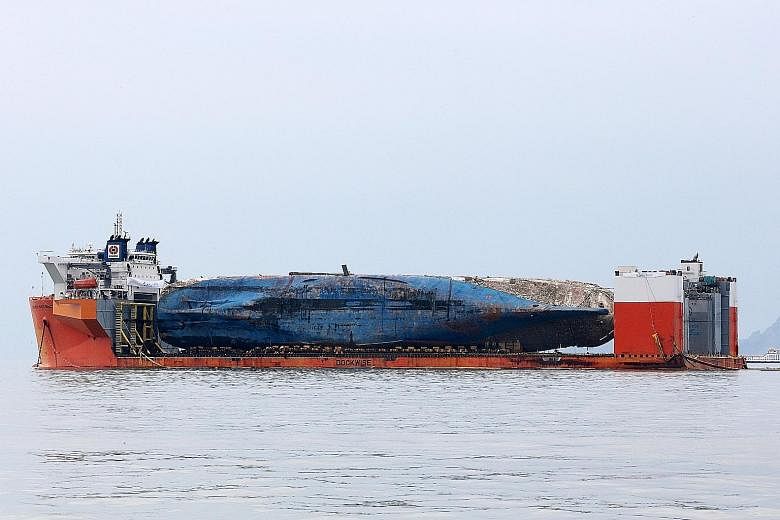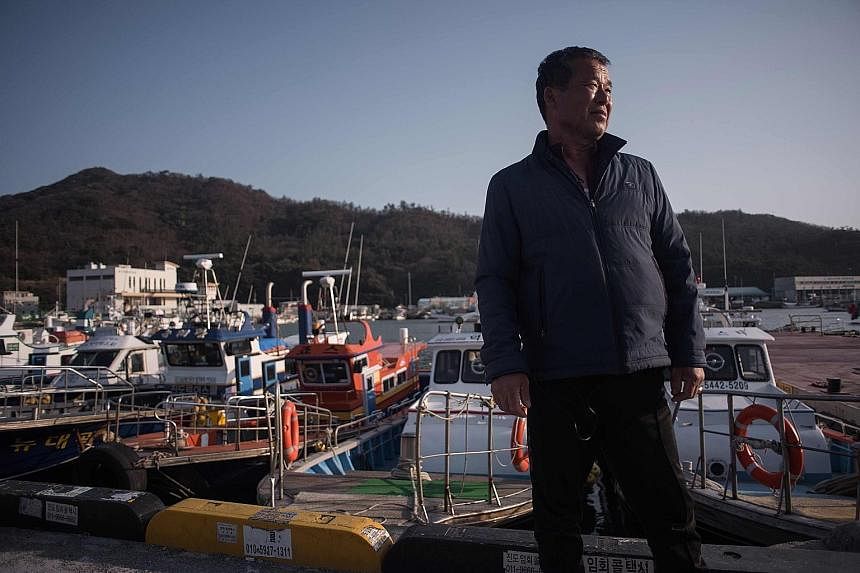JINDO (South Korea) • When South Korea's Sewol ferry sank three years ago, killing more than 300 people, it also devastated businesses close to the wreck site.
Now business owners hope the salvage of the ship will herald a change in their fortunes.
The ship had gone down in the waters off Jindo, a large island and home to Dadohaehaesang National Park, the country's largest.
Rocky outcrops dot the waters while bigger ones offer beautiful beaches, hiking trails and accommodation with scenic ocean views, along with temples and seasonal festivals.
At a harbour on the southern side of Jindo, motorboats used to be chartered for trips by fishermen and tourists.
Now they lie tied to the dock and their owners sit idle nearby.
Business is down by half, said captain Park Tae Il, as anglers - his main clients - avoid the area.
"Fishermen call it the devil's water. The atmosphere is cold because so many young lives were lost."
Freshly caught seafood was once one of the attractions in the area but demand has been destroyed by the disaster.
Businesses ceased operations, said fried chicken vendor Lee Myung Seok. "No one bought seafood from Jindo waters because of the belief that (the marine creatures) fed on human flesh."
The sinking is one of South Korea's worst-ever maritime accidents and almost all the victims were schoolchildren.
It was hugely controversial and investigations concluded that it was largely man-made - the cumulative result of an illegal redesign of the ship, an overloaded cargo bay, inexperienced crew and a questionable relationship between the ship operators and state regulators.
Now more visitors than ever before come to Jindo - more than 100 every weekend - said local official Choi Min Woo.
But instead of staying in the area, they pay their respects to the dead at a shrine in Paengmok - placing white chrysanthemums before a wall covered with pictures of dead children - and leave.
"They are on their way to another tourist location," said Mr Choi. And that has crippled tourist businesses.
Ms Lim Jung Sook opened a guesthouse on the island just a year before the accident.
In her first 12 months in business, she charged US$300 (S$420) a night for a two-bedroom cabin during the peak season and all her rooms were full, she said.
But business plunged after the disaster and even a 50 per cent price cut failed to attract customers.
"Even my friends refuse to come, saying they are not comfortable vacationing wearing sunglasses and straw hats in such (a) subdued atmosphere," she added.
Business owners hope that last week's successful raising of the wreck will herald a revival for their enterprises.
The Sewol ferry, which fully emerged from the water after a salvage operation, is anticipated to arrive at a major southern port as early as tomorrow, sources told Yonhap news agency.
The crew is currently speeding up steps to drain water and oil from the ship.
AGENCE FRANCE-PRESSE


